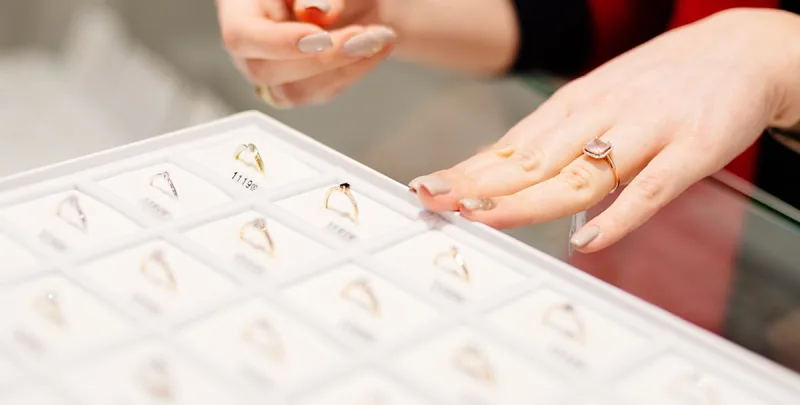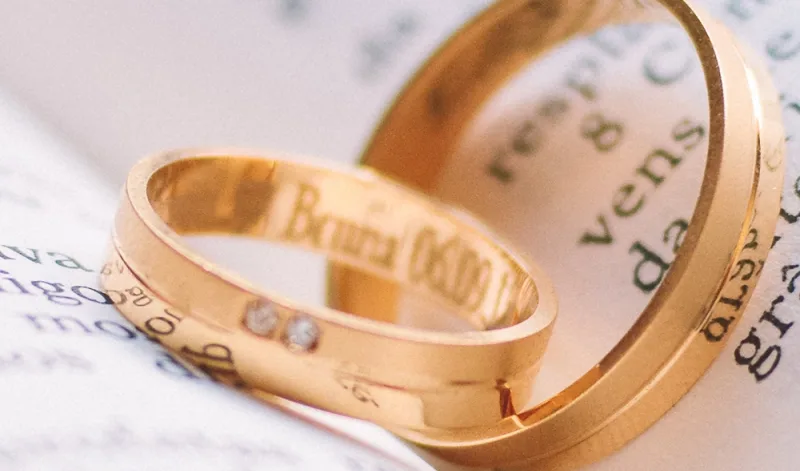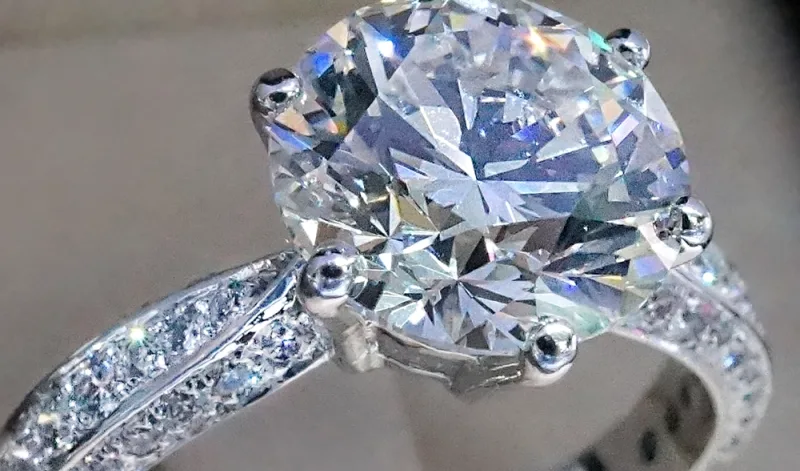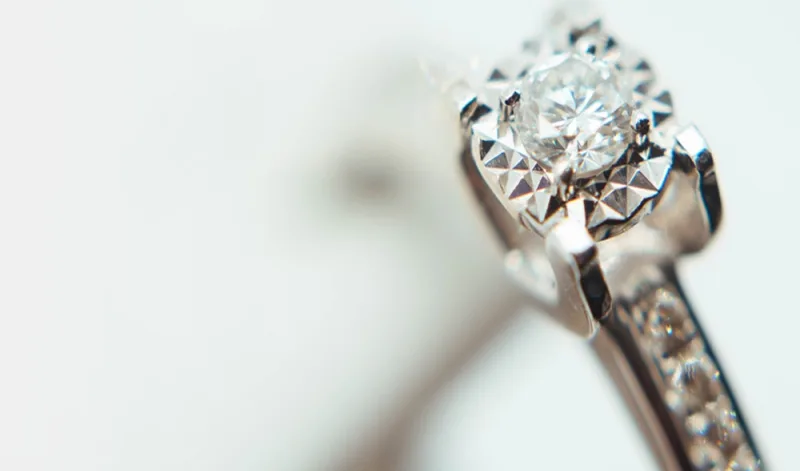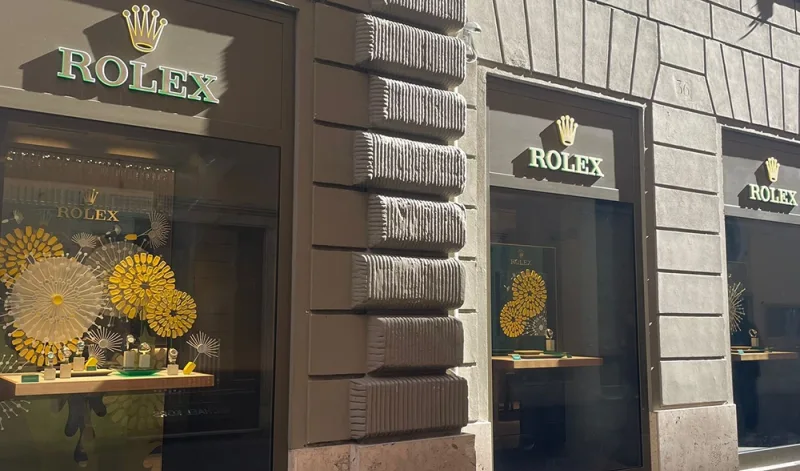What you need to know about conflict-free stones
In the past few decades, consumers are becoming more focused on ethical goods, including diamonds. Questions have been asked as to where the stones in a diamond ring or other jewellery come from. And are they as pure as they seem?
The truth is, not all diamonds are created equal, and a growing number of people are putting their money where their ethics are by choosing conflict-free, ethical diamonds.
But what are conflict-free diamonds?
What does "conflict-free" diamonds mean?
When we say "conflict-free," we’re talking about diamonds that haven’t been mined in war zones or used to fund armed conflicts. You’ve probably heard the term "blood diamonds" before - these are the opposite of that. Conflict-free diamonds promise that their sparkle hasn’t come at the expense of human rights or peace in troubled regions.
But here’s the kicker: just because a diamond is labelled conflict-free, it doesn’t automatically mean it’s completely ethical. A stone might avoid ties to war, but what about the workers who mined it? Were they treated fairly? Was the environment looked after? These are the bigger questions more of us are asking these days.
What is the Kimberley Process?
The Kimberley Process Certification Scheme (KPCS), which launched in 2003, was designed to stop conflict diamonds from entering the global market. They represent over 99% of the world’s diamond trade and are supported by the United Nations (UN) to enhance global peace and security by preventing conflict diamonds.
Diamonds mined under the KPCS must meet certain conditions and have to be certified – you can read more on their website here.
It’s laser-focused on stopping diamonds linked to war zones, but some commentators believe that it often overlooks other ethical issues, like poor working conditions, environmental destruction, or corruption. So, while it’s a good starting point, it may not be the final word in ethical diamond buying.
How do I know if a diamond is ethically-sourced?
The key is to look for certifications that go beyond just "conflict-free” and choose retailers who commit to ethical sourcing and transparency. Many UK jewellers provide detailed policies on the origins of their diamonds, including assurance that they do not purchase conflict diamonds. Certifications to look out for include:
- Fairtrade Gold and Fairmined
Okay, these are technically for gold, but jewellers who stick to these standards are often serious about sourcing ethical diamonds too. It’s worth checking if they mention their diamond sourcing practices.
Blockchain-traced diamonds
Some diamonds now come with a blockchain certificate that digitally tracks their journey from mine to market. This technology ensures transparency and offers peace of mind.
- Responsible Jewellery Council (RJC)
This is a global organisation highlighting companies that meet high ethical, environmental, and social standards. While it’s not specific to individual diamonds, it’s a solid indicator of a retailer’s commitment to doing the right thing.
Verify retailer policies
Choose retailers who commit to ethical sourcing and transparency. Many UK jewellers provide detailed policies on the origins of their diamonds, including assurance that they do not purchase conflict diamonds.
When you’re shopping, don’t be shy about asking your jeweller what certifications they use. If they can’t give you a straight answer, that’s a red flag.
Why are more people choosing ethical diamonds?
We’re more informed than ever
Thanks to social media, documentaries, and good old-fashioned news, most of us know a lot more about the dark side of the diamond trade than we did a decade ago.
Films like Blood Diamond opened many eyes to the human cost behind some of these stones. Once you know, it’s hard to ignore, and many people are choosing to make more conscious decisions as a result.
Environmental concerns
Traditional diamond mining can be devastating for the planet - think deforestation, water pollution, and entire ecosystems turned upside down. That’s why some people are turning to lab-grown diamonds. These beauties are created in a controlled environment, meaning they have a much smaller environmental footprint. And the best part? They’re virtually identical to mined diamonds.
Putting our money where our values are
Ethical consumerism isn’t just a buzzword anymore. Many of us are particularly passionate about aligning our spending with our values, whether that means buying sustainably, supporting fair wages, or reducing their carbon footprint. This shift has put pressure on the jewellery industry to clean up its act - and fast.
How to shop for an ethical diamond
If you’re looking to buy an ethical diamond – whether a diamond ring or other diamond jewellery - here are some tips to keep in mind:
- Do your homework: Before you hit the shops, read up on certifications and ethical sourcing. Knowledge is power, and it’ll make your search much easier.
- Stick to reputable jewellers: Not all jewellers are created equal. Look for ones that are open about their sourcing practices.
- Consider lab-grown diamonds: These are a fantastic alternative if you want to avoid mining altogether. Plus, they’re often more affordable than natural diamonds.
- Ask for proof: Don’t just take a jeweller’s word for it. Ask for documentation that confirms a diamond’s origin and certifications.
- Think big picture: Don’t just stop at conflict-free. Look for diamonds that meet wider ethical standards, from fair labour practices to environmental sustainability.
The future of ethical diamonds
The diamond industry is slowly but surely changing, thanks to consumers demanding better practices. Blockchain technology is being explored as a way to track diamonds from mine to market, giving buyers full transparency about their stone’s journey. And with lab-grown diamonds becoming more popular and accessible, ethical options are no longer niche - they’re going mainstream.
Retailers are catching on too, with many adopting more sustainable practices and working with organisations that promote ethical sourcing. It’s an exciting time for the industry, and the hope is that these changes will make unethical practices a thing of the past.
Diamonds are forever
Buying a diamond is a big deal. Whether it’s for an engagement, an anniversary, or just because (you deserve it!), it’s worth taking the time to make sure your purchase aligns with your values.
And once you have found your perfect jewellery, don’t forget your diamond ring insurance. It is designed to financially protect your diamond ring from theft, loss, or damage. Insurance provides peace of mind, so your valuable investment remains secure and fully covered.
Disclaimer: The information provided in this article is for general informational purposes only and is intended to give readers a better understanding of ethical diamonds and conflict-free sourcing. While every effort has been made to ensure the accuracy and reliability of the content, we recommend conducting your own research and consulting with reputable jewellers or industry professionals before making a purchase. The mention of certifications, organisations, or retailers does not constitute endorsement. This article reflects industry insights at the time of writing and may not account for recent developments or changes in practices.


